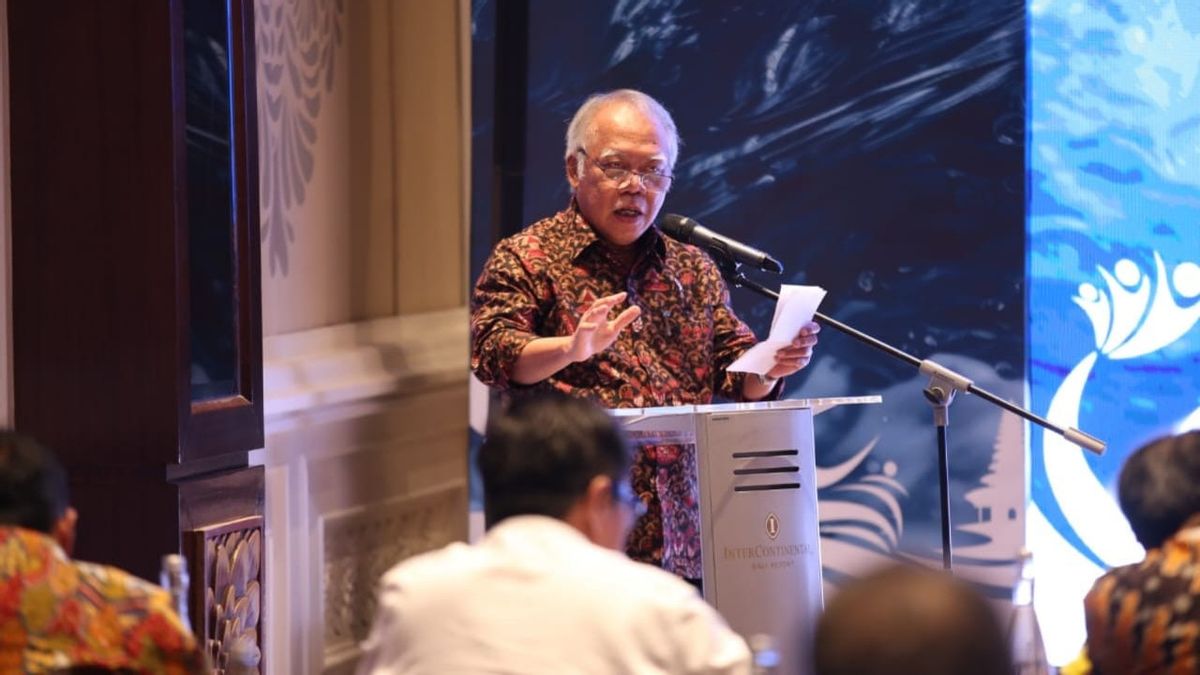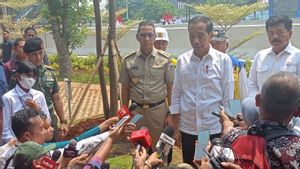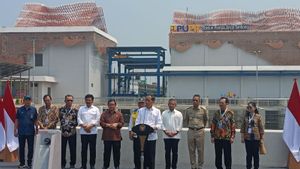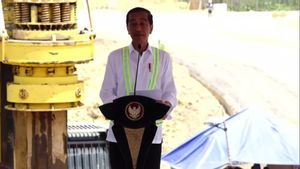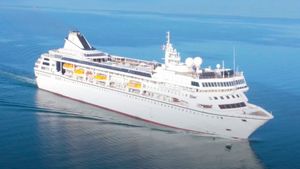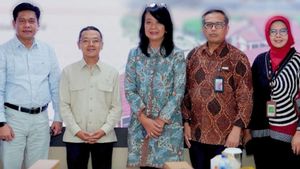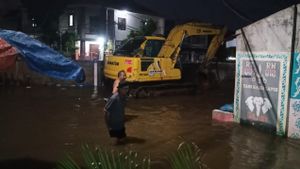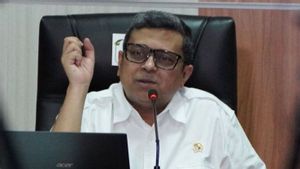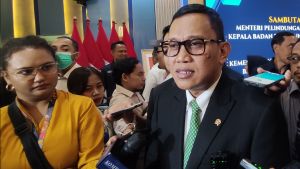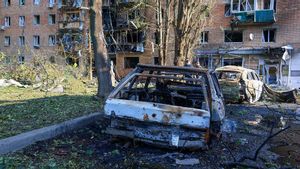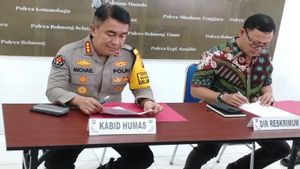The Ministry of Public Works and Public Housing (PUPR) said the importance of infrastructure development in the water sector in order to create areas that deserve to live in for the community.
PUPR Minister Basuki Hadimuljono said water infrastructure is very important in order to create a habitable and beloved city. In this case, all people need access to clean water.
"If the city is water-friendly or water-resilience city is not only for flooding, but also for comfort. Water-sensitive there is such a thing as a potential city, sustainable city. Everything must be based on water because people want to live comfortably, there must be water, it is impossible for people to live comfortably without water," said Minister Basuki in his remarks at the Opening of the National Seminar at the PUPR Ministry Building, Jakarta, Monday, December 11.
Minister Basuki said, for the DKI Jakarta area itself, his party has built a number of water sector infrastructures ranging from upstream to downstream Jakarta. The dams that have been completed and inaugurated are Ciawi Dam and Sukamahi, both of which are able to control flooding upstream.
"In the middle of this there is a drain, then there is normalization. Downstream there are pumps. If we built it for a long time, there might have been 500 (pumps), together with DKI there were 530 pumps prepared for the downstream part, one of which was Sentiong," he said.
Meanwhile, in the downstream section, now there is the Ancol Sentiong Pump Station which was recently inaugurated by President Joko Widodo (Jokowi) today. This flood pump is targeted to secure seven sub-districts from the threat of flooding. Hopefully, this pump will also be able to clear the Item River.
He added that currently the government is also boosting the normalization of the 17 km Ciliwung River. It is targeted that this project and the installation of the embankment can be completed in 2024 so that flooding can be controlled.
"That's why yesterday there was a flood in Kebon Nanas and Kampung Melayu because there was no embankment yet, but most of it we have channeled it to the KBT (East Flood Canal) so that it recedes faster. Hopefully, in 2024, we can carry all of them, so that we can control the floods in Jakarta immediately," he said.
On the same occasion, the Head of the Regional Infrastructure Development Agency (BPIW) of the Ministry of PUPR Yudha Mediawan said, Indonesia has challenges in fulfilling water. At least, there needs to be an increase of 50 billion cubic meters from 19 billion cubic meters today.
"Almost 160 percent and about 250 cubic meters per capita can eliminate the negative impact of water storage even with dry climate change scenarios," he said.
Yudha said the majority of the national water reservoirs came from lakes and dams. The distribution of water reservoir buildings is considered uneven in every Indonesian archipelago.
"With the majority in Java Island at 63 percent, this is in contrast to the island of Papua, which does not yet have water storage to date," he said.
Based on data from the National Development Planning Agency (Bappenas) Yudha said, water management in urban areas is getting bigger. This challenge is in line with the estimate that the world's population living in urban areas will increase to 72.9 percent by 2045.
"Of course, the urbanization phenomenon will cause problems in urban areas. Related to water properties and problems that will arise are the management of water resources, as has happened in many urban areas of Indonesia," he explained.
Therefore, the Regional Infrastructure Development Agency (BPIW) of the Ministry of Public Works and Public Housing (PUPR) in collaboration with the Planning Expert Association (IAP) held a National Seminar with the theme Realizing Water-Friendly Cities: Challenges and Opportunities for Regional Infrastructure Planning.
SEE ALSO:
The purpose of this national seminar is to compile recommendations and proposals in order to raise ideas for water management in urban areas and enrich important points for the central government, especially the Ministry of PUPR to be brought to the 10th World Water Forum 2024 in Bali.
The target of such activities is first, increasing knowledge about Water-Friendly Cities. Second, increasing understanding of Water-Friendly City Supporting Infrastructure.
Third, share information about challenges and opportunities in including water-friendly aspects in planning. Then, the fourth target is to increase cooperation in the realization of Water-Friendly Cities within the scope of the Ministry of PUPR, ministries/agencies, central and local governments, IAP and other related associations, as well as academics and students.
The English, Chinese, Japanese, Arabic, and French versions are automatically generated by the AI. So there may still be inaccuracies in translating, please always see Indonesian as our main language. (system supported by DigitalSiber.id)
